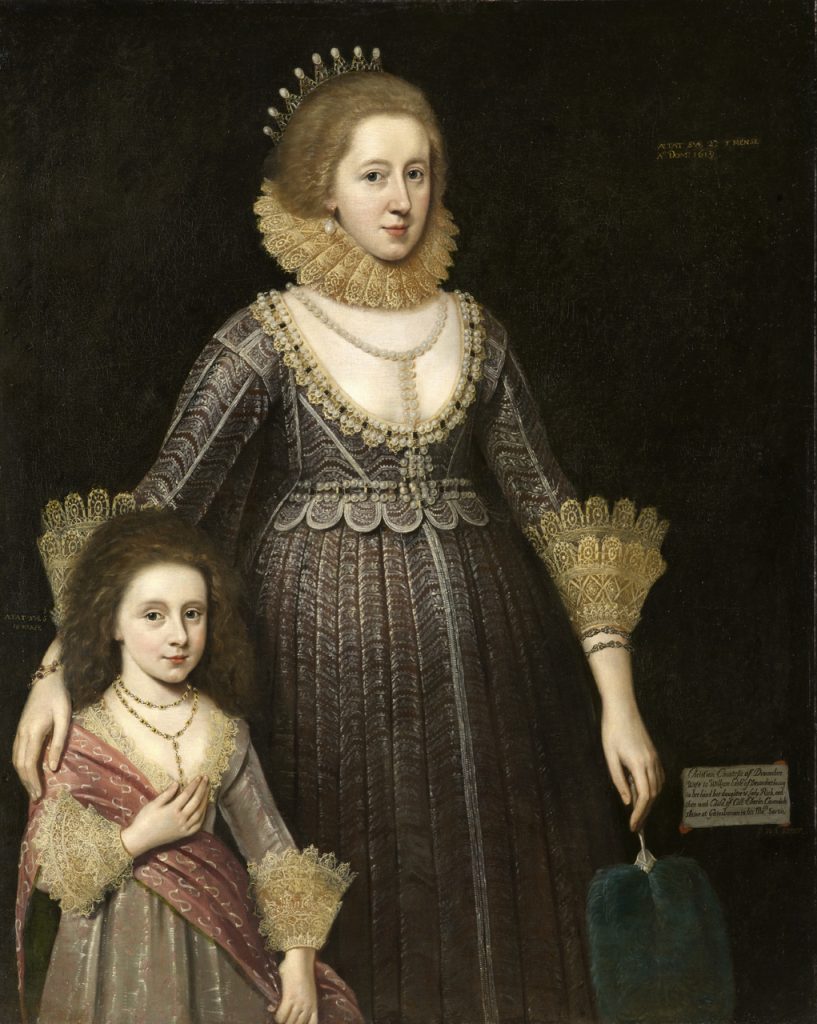Christian, Lady Cavendish, Later Countess of Devonshire (1598–1675), and Her Daughter (work of art)
Artwork Info
About
This painting of Lady Cavendish and her daughter, Anne, is one of a pair of portraits. The other portrait depicts her husband, William, later Earl of Devonshire, and their son and heir, William. Both portraits typify the rather sober and straightforward style that characterized British portraiture prior to the arrival of the celebrated Flemish painter Anthony van Dyck in 1632.
William and Christian married in 1608 when the bride was only twelve. She was the daughter of Lord Bruce of Kinloss, an ardent Scottish supporter of James I. The king arranged the marriage and contributed £10,000 toward the marriage settlement. William had a very lavish lifestyle, particularly after succeeding his father; according to one contemporary account, he “accumulated very great debt, entered into by an excess of gallantry, the vice of that age, which he too much indulged himself in.” Lady Cavendish skillfully managed the family’s financial affairs following William’s death in 1628 and was a person of considerable influence in both politics and literature.
The fashionable dress worn by Lady Cavendish is made of expensive brown Italian brocade. White lace covers her gown and then reappears in her elaborate collar and cuffs. Pearls edge the neckline of her dress, form her belt and necklace, and are attached to the points of her tiara. She also wears earrings and bracelets on both wrists and holds a blue feather fan in her left hand. Her daughter, Anne, a young beauty with dark hair and penetrating glance, wears an equally elaborate outfit of Italian brocade. The girl’s accessories include a muted red silk scarf, a necklace, and linen cuffs much like her mother’s.
The inscription on the portrait of Christian (added by a later hand) indicates she was pregnant with her second son, Charles, named after his godfather, King Charles I.
tags: fashion, family, identity, observation, power, change, pattern, textiles

